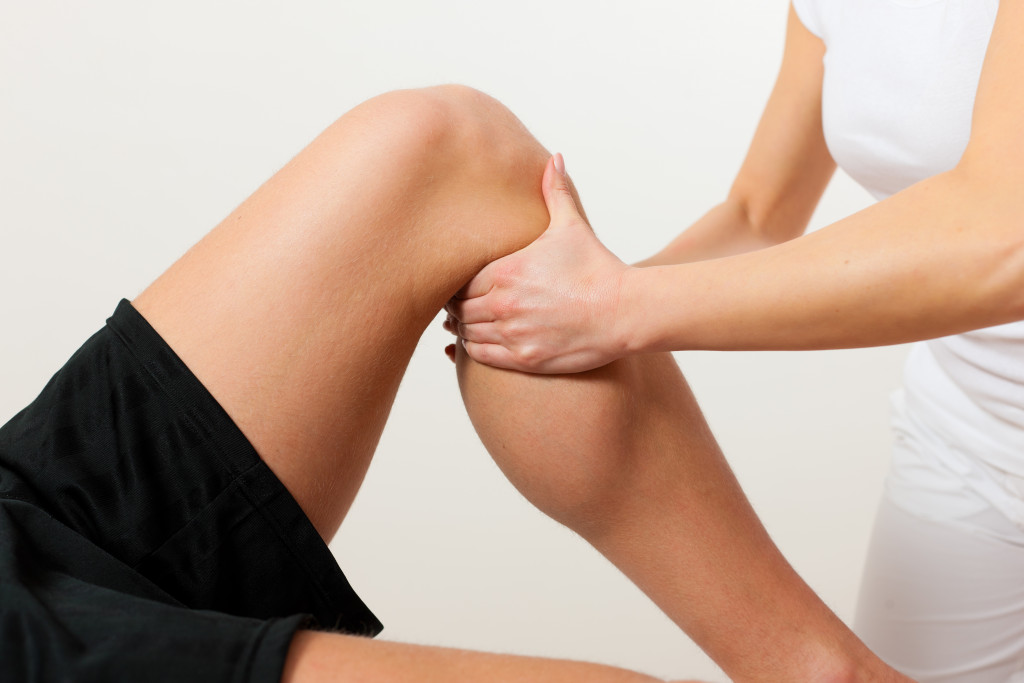It’s a common occurrence in many sports for an athlete to experience some degree of injury. Whether it be a sprained ankle, pulled muscle, or concussion, the effects can range from mild to debilitating and last from days to months. It is important that athletes know what they should do when they have obtained a sports injury, so they can get back on their feet as soon as possible and return to the game with minimal interruption.
There are three main steps: first, take time off from activity; second, use ice or heat packs; and thirdly, take medication if necessary. The type of treatment depends on the severity of your injury but no matter what you choose it is imperative that you listen to your body and refrain from re-injuring yourself.
Take Time off From the Sport
If you have obtained a sports injury, it is important to take time off from the sport so your body can properly heal. Taking time off from activity or exercise will allow you to reduce the number of harmful stressors on your injury as it heals.
This might include giving yourself at least 24 hours in between practices, games, and competitions so your muscles can recover.
Use Ice or Heat Packs to Reduce Pain and Swelling
When you have a sports injury, it is important to use ice or heat packs to reduce pain and swelling. Applying ice will help to reduce inflammation while applying heat will help to loosen up your muscles.
You can use an ice pack or a bag of frozen vegetables for 15 minutes at a time, or a heating pad for 20 minutes at a time. It is important that you do not apply heat or ice for too long, as this could cause more damage to your injury.
Take Medication if Necessary
If the pain from your sports injury is severe, you may need to take medication to help relieve the symptoms. Ibuprofen and acetaminophen are two examples of over-the-counter medications that can help to reduce swelling and pain.
It is important that you carefully read labels on any medication to ensure it won’t interact with other medications or allergies you might have. If you have a serious injury or one that is not responding to treatment, please consult your family physician for further instructions.
Consult With a Medical Professional

If the pain persists or gets worse after using ice or heat packs, you might have a more serious sports injury. If this is the case, you should consult with your family physician or chiropractor for further instruction.
A chiropractor can offer you a more hands-on approach to recovery and provide exercises that will help speed up your recovery.
Continue to Stretch and Exercise After You’ve Recovered Fully
It is important to continue stretching and exercising after you’ve recovered from your sports injury. This will help to strengthen your muscles and prevent future injuries. Different body injuries may require different exercises or stretching techniques.
Consult with the right authority for individualized exercise programs to suit your particular injury.
Follow Any Dietary Restrictions Given by Your Physician
If you have a sports injury, it is important to follow any dietary restrictions given to you by your physician. This will help to reduce the amount of stress on your injury as it heals.
Some common dietary restrictions include avoiding foods that are high in salt or sugar and eating plenty of fruits and vegetables. It is also important to drink plenty of water so you stay hydrated.
Listen to Your Body and Take the Necessary Steps
Lastly, it is important to listen to your body and take the necessary steps to ensure a full and proper recovery. Your body is meant to heal itself, so it is important that you give it the time and attention it needs in order to recover.
Listening to your body includes resting as much as possible, following your physician’s instructions regarding medication and dietary restrictions, and taking the time to stretch and exercise.
In short, if you have obtained a sports injury, it is important to take the necessary steps for a full and proper recovery. This may include taking time off from the sport, using ice or heat packs, and taking medication if necessary. It is important to listen to your body and follow any dietary restrictions given by your physician. You should also continue stretching and exercising after you’ve recovered fully. Lastly, remember to drink plenty of water so you stay hydrated. Give yourself the time and attention your body needs in order to fully recover and return to sports.

